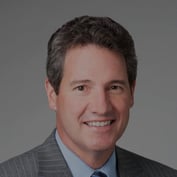Despite the ongoing COVID-19 pandemic and other challenges, Schwab executives and three independent advisors who custody with the firm gave a positive take on the current state of the industry and a mostly upbeat growth forecast during a call with reporters Friday before the Schwab Impact conference.
Their takes also were reflected in the results from Schwab’s latest Independent Advisor Outlook Study released Tuesday, the first day of the the firm’s annual conference, which is being held online this year.
The vast majority of the 1,347 independent advisors polled who custody with Schwab (91%) say they expect the RIA industry will continue to grow, with 58% of them projecting slow and steady growth and 33% projecting growth at a higher rate than the market, according to the study, based on an online survey conducted Aug. 3-16.
Meanwhile, 82% of the firms polled said they anticipated growth in net new assets over the next year, with organic growth likely to be the key driver by most of them (93%). However, the growth forecast for many of them is down from original projections, according to Schwab, and those expecting growth declined from 94% of firms in the 2019 study.
Fifty percent of net new assets are expected to come from new-to-firm clients and an additional 43% from existing clients, according to the study.
‘You Are All National Firms Now’
The last decade “has been a phenomenal period of growth for the independent” advisor and “it continues to grow,” Bernie Clark, head of Schwab Advisor Services, told reporters Friday.
Despite challenges brought on by the pandemic, advisors “remain very optimistic because they’re smart, they have loyal clients and they know that their clients need more help” because it is, after all, a “confusing time,” he said.
Their optimism, however, is tempered a bit more this year because we are in a “period of uncertainty” that includes the pandemic, a high unemployment rate and other factors, he said. Because of these challenges, however, RIAs are “needed greatly” now and their business model “shines,” Clark said.
Meanwhile, “there’s still a far larger number of assets outside of this profession than inside it,” he explained. “We’ve got a $5 trillion share of what can be a $20 trillion market. There’s a lot of opportunity to help clients grow even more effectively,” and digital workflows are making it easier.
Clark also told advisors that, as a result of the shift to remote work amid the pandemic, “you are all national firms now.”
The executive added: “There really are no boundaries. The conversation about going national has happened and it’s called virtual and your clients are everywhere and some that were physically local have moved themselves and relocated and they’re now representing other states in your portfolio.”
There are, however, potential barriers to growth that may impede the optimism of advisors, according to Rob Farmer, managing director of corporate communications at Schwab.









 October 27, 2020 at 03:27 PM
October 27, 2020 at 03:27 PM











